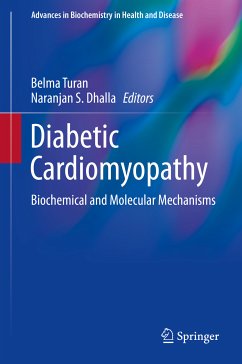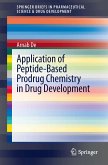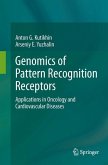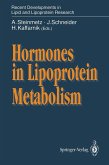Diabetic Cardiomyopathy: Biochemical and Molecular Mechanisms is a compilation of review articles devoted to the study on the topic with respect to biochemical and molecular mechanisms of hyperglycaemia. The wide range of areas covered here is of interest to basic research scientists, clinicians and graduate students, who are devoted to study the pathogenesis of diabetes-induced cardiovascular dysfunction. Furthermore, some chapters are directed towards increasing our understanding of novel ways for the prevention/treatment of cardiomyopathy.
Twenty five articles in this book are organized in three sections. The first section discusses general aspects of the metabolic derangements in diabetic cardiomyopathy including metabolic alterations and substrate utilization as well as cardiac remodelling in the heart; role of diet in the development of metabolic syndrome in the heart; effect of hyperglycaemia in terms of biochemical and structural alterations in heart. In the second section, several cellular and molecular mechanisms are discussed indicating that diabetic cardiomyopathy is a multifactorial and complex problem. The third section discusses the prevention and treatment of diabetes using appropriate diet, proper supplements including antioxidants, angiotensin inhibitors and some other drugs. All in all, this book discusses thediverse mechanisms of diabetic cardiomyopathy with some information on new therapeutic approaches for finding solutions to prevent or reverse the development of cardiac dysfunction.
Dieser Download kann aus rechtlichen Gründen nur mit Rechnungsadresse in A, B, BG, CY, CZ, D, DK, EW, E, FIN, F, GR, HR, H, IRL, I, LT, L, LR, M, NL, PL, P, R, S, SLO, SK ausgeliefert werden.
"Cardiovascular disease occurs also, but rarely, in late adolescence and young adults, depending on age at onset of disease and degree of metabolic control. Thus, this well referenced and up to date text is mainly of interest to adult diabetologists , cardiologists and researchers." (Pediatric Endocrinology Reviews (PER), Vol. 12 (1), September, 2014)









